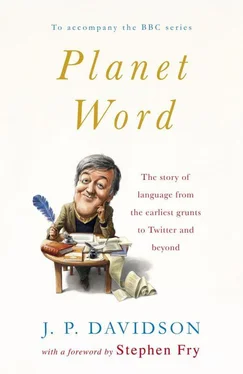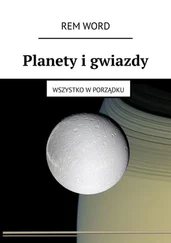Steven Pinker is one of the foremost linguistic experts in the world, author of many bestselling books on language and a professor at Harvard University’s Department of Psychology. He is, without doubt, the most high-profile, and some would say most controversial, disciple of Noam Chomsky.
Pinker has built on some of Chomsky’s theories to create his own view on linguistics. His work is more technical and less abstract than Chomsky’s; rather than looking at the deep structures within the mind, he is fascinated by the surface manifestations — how a child learns to speak, why complex grammars are useful and what part natural selection plays.
‘Language at a bare minimum needs words,’ explains Pinker, ‘and the words have to be the same words that everyone else is using. If you had your own private language, if it were even possible for language to just spring out of the brain, it would be completely useless, no one would understand a word you’re saying. So the child has to be attuned to the words that are floating around in the linguistic environment and to the sound patterns and to the rules of grammar that order them in meaningful sequences.’
We usually think of that input as coming from parents, although children are more attuned to their peers than to their parents, as any immigrant will attest. If you move from Britain to America and your children grow up with American children, they will end up with an American accent. So there is an environmental component, but, says Pinker, ‘there also has to be some kind of talent in the child’s brain that allows them not just to parrot back the exact words and sentences they’ve heard. It’d be very upsetting if that’s what your child did. We expect children right from the beginning to compose their own sentences, to abstract the rules of combination, the rules of grammar, so that they can talk about new events and new thoughts and take the familiar words but rearrange them in new sequences.’
So can a young child actually come up with a sentence that’s entirely original, perhaps never before uttered in the history of their language?

Steven Pinker, one of the world’s leading linguists
Pinker says yes, right from the beginning, from the time when children first start putting two words together, some of those combinations are clearly from their own creativity. An example: a child whose hands are covered with jam and wants his mother to wash them. The mother washes off the jam, and the child says, ‘All gone sticky.’ Pinker explains: ‘Now that doesn’t correspond to any adult English sentence, but the child had those three words and had the formula that put them in that order to express the idea of the passing of a state. So that’s already involving, almost without it being a tense, a sense of past: “gone”. And so, even without apparently using a sophisticated series of words, there was a sense of saying something once happened, and it’s now over. There’s the concept of a change of state, and moreover there’s the ability to put words together in brand new sequences that had not been previously memorized but that express a coherent thought.’
He gives another example: ‘more outside’, i.e. a child wants to be taken out.
‘That’s quite a cognitive feat to have the concept of addition or repetition which had been associated with the word more , and to put those two words together in a way that doesn’t exactly map on to adult syntax but that an adult can certainly comprehend. And that combination, that little baby micro-sentence, came from the linguistic creativity of the child’s mind. The mother or father would never have said “more outside”, but the mother would often have said “more”, and the baby associates “more” with more food, but to transfer that to something as abstract as the outside is an act of language no matter how primitive it seems.’
Pinker elaborates by saying that, right at the beginning of language learning, when the first pairs of words are being put together, we use words in conjugational and inflectional forms, like when a child says, ‘He sticked it on the paper,’ or ‘He teared the paper,’ or ‘We holded the baby rabbits.’ We know these forms haven’t simply been parroted from adults, because adults don’t put regular past-tense endings on irregular verbs like stick and tear , but the child has clearly abstracted a cognitive equivalent of a rule of grammar: to form the past tense, add ‘ed’. So that allows the child to come out with forms that are new for the child and haven’t simply been memorized from what they hear from their parents or peers.
The essence of language is to combine things according to rules. So you stick a subject and a predicate together and you get a sentence. This combination can be done in sequence. So you can talk not just about the rat but also the rat who ate the cheese . And you can talk not just about the cat but the cat who killed the rat who ate the cheese . But you can also stick one phrase inside another. Take this example: The boy that I saw the day that I was having my teeth done left . And then when you put a noun phrase inside a noun phrase you get the boy’s mother or, adding still more, the boy’s mother’s friend , which is a noun inside a noun inside a noun. So you get: The boy’s mother’s friend that I saw the day that I was having my teeth done left. ‘It’s an extremely powerful information-processing technique,’ says Pinker ‘because it means with a very small tool kit you can do an infinite number of things. In the case of language, what it gives us is the ability to talk about an unlimited number of ideas using the fixed vocabulary that we acquired at our mother’s knee.
One of the early experiments that aimed to see just how children acquired these grammatical rules without seemingly trying was conducted in 1958 by one of Chomsky’s contemporaries, Jean Berko Gleason, now Professor Emerita at Boston University.
A sprightly woman in her seventies, Jean still has a passionate curiosity about how language works, though with fewer answers and less certainty than when she started out more than fifty years ago. She has brought her original Wug cards with her — simple, hand-drawn pictures of an imaginary animal. Jean tells a group of children aged between two and four that this animal is called a wug ; then she shows a picture of two wugs to see if they can make the connection and make wug into the plural wugs . Some do, some don’t. She tries other animals and then action pictures like a man balancing a kettle on his head to see how the children cope with verb tenses of an imaginary verb. The interchange with one of the children, Julian, is revealing:
Jean : Okay, okay, now this is another creature, this one’s called a tass. That’s a tass.
Julian : Yeah, okay.
Jean : Now, there’s another one, there are two of them. So there are two.
Julian : Tass.
Jean : Tass.
Julian : Tass.
Jean : Two tass. Okay. Okay, very, very good. Okay. This is a man who knows how to spo. He is spoing. He did the same thing yesterday. Yesterday, what did he do, yesterday he…?
Julian : Um, balanced the, a kettle on his head.
Jean : Well, yes he did, but he was spoing yesterday so yesterday he …?
Julian : Spoed.
Jean : Perfect. Very, very good. He spoed. Okay. Now, this is a man who knows how to gling. He is glinging. He did the same thing yesterday, what did he do yesterday, yesterday he …?
Читать дальше













